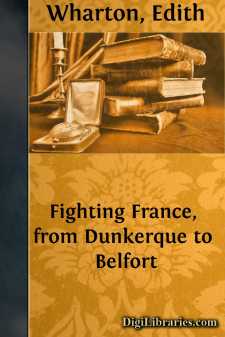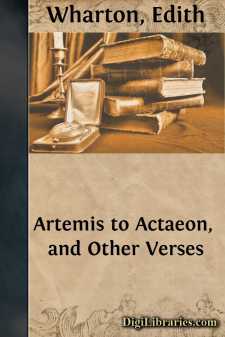Categories
- Antiques & Collectibles 13
- Architecture 36
- Art 48
- Bibles 22
- Biography & Autobiography 813
- Body, Mind & Spirit 142
- Business & Economics 28
- Children's Books 15
- Children's Fiction 12
- Computers 4
- Cooking 94
- Crafts & Hobbies 4
- Drama 346
- Education 46
- Family & Relationships 57
- Fiction 11828
- Games 19
- Gardening 17
- Health & Fitness 34
- History 1377
- House & Home 1
- Humor 147
- Juvenile Fiction 1873
- Juvenile Nonfiction 202
- Language Arts & Disciplines 88
- Law 16
- Literary Collections 686
- Literary Criticism 179
- Mathematics 13
- Medical 41
- Music 40
- Nature 179
- Non-Classifiable 1768
- Performing Arts 7
- Periodicals 1453
- Philosophy 64
- Photography 2
- Poetry 896
- Political Science 203
- Psychology 42
- Reference 154
- Religion 513
- Science 126
- Self-Help 84
- Social Science 81
- Sports & Recreation 34
- Study Aids 3
- Technology & Engineering 59
- Transportation 23
- Travel 463
- True Crime 29
Sort by:
by:
Edith Wharton
I Professor Joslin, who, as our readers are doubtless aware, is engaged in writing the life of Mrs. Aubyn, asks us to state that he will be greatly indebted to any of the famous novelist's friends who will furnish him with information concerning the period previous to her coming to England. Mrs. Aubyn had so few intimate friends, and consequently so few regular correspondents, that letters will be...
more...
by:
Edith Wharton
I A girl came out of lawyer Royall's house, at the end of the one street of North Dormer, and stood on the doorstep. It was the beginning of a June afternoon. The springlike transparent sky shed a rain of silver sunshine on the roofs of the village, and on the pastures and larchwoods surrounding it. A little wind moved among the round white clouds on the shoulders of the hills, driving their...
more...
by:
Edith Wharton
I John Durham, while he waited for Madame de Malrive to draw on her gloves, stood in the hotel doorway looking out across the Rue de Rivoli at the afternoon brightness of the Tuileries gardens. His European visits were infrequent enough to have kept unimpaired the freshness of his eye, and he was always struck anew by the vast and consummately ordered spectacle of Paris: by its look of having been...
more...
by:
Edith Wharton
AUGUST On the 30th of July, 1914, motoring north from Poitiers, we had lunched somewhere by the roadside under apple-trees on the edge of a field. Other fields stretched away on our right and left to a border of woodland and a village steeple. All around was noonday quiet, and the sober disciplined landscape which the traveller's memory is apt to evoke as distinctively French. Sometimes, even to...
more...
by:
Edith Wharton
I "Undine Spragg—how can you?" her mother wailed, raising a prematurely-wrinkled hand heavy with rings to defend the note which a languid "bell-boy" had just brought in. But her defence was as feeble as her protest, and she continued to smile on her visitor while Miss Spragg, with a turn of her quick young fingers, possessed herself of the missive and withdrew to the window to read...
more...
by:
Edith Wharton
It was clear that the sleigh from Weymore had not come; and the shivering young traveller from Boston, who had counted on jumping into it when he left the train at Northridge Junction, found himself standing alone on the open platform, exposed to the full assault of night-fall and winter. The blast that swept him came off New Hampshire snow-fields and ice-hung forests. It seemed to have traversed...
more...
by:
Edith Wharton
It was last winter, after a twelve years' absence from New York, that I saw again, at one of the Jim Cumnors' dinners, my old friend Halston Merrick. The Cumnors' house is one of the few where, even after such a lapse of time, one can be sure of finding familiar faces and picking up old threads; where for a moment one can abandon one's self to the illusion that New York humanity is...
more...
by:
Edith Wharton
I. On a January evening of the early seventies, Christine Nilsson was singing in Faust at the Academy of Music in New York. Though there was already talk of the erection, in remote metropolitan distances "above the Forties," of a new Opera House which should compete in costliness and splendour with those of the great European capitals, the world of fashion was still content to reassemble every...
more...
by:
Edith Wharton
I The village lay under two feet of snow, with drifts at the windy corners. In a sky of iron the points of the Dipper hung like icicles and Orion flashed his cold fires. The moon had set, but the night was so transparent that the white house-fronts between the elms looked gray against the snow, clumps of bushes made black stains on it, and the basement windows of the church sent shafts of yellow light...
more...
by:
Edith Wharton
ARTEMIS TO ACTAEON THOU couldst not look on me and live: so runs The mortal legend—thou that couldst not live Nor look on me (so the divine decree)! That saw'st me in the cloud, the wave, the bough, The clod commoved with April, and the shapes Lurking 'twixt lid and eye-ball in the dark. Mocked I thee not in every guise of life, Hid in girls' eyes, a naiad in...
more...











